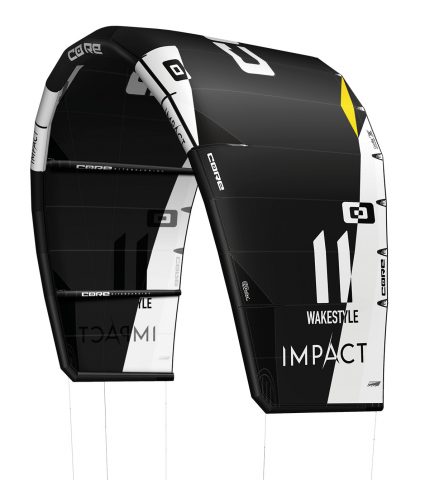
Types of Kites

Types of Kites
They are large, eye-catching, powerful beauties in the sky and if you’re interested in kiteboarding, you can’t wait to get behind one! Kites are the driving force and main contributor to kiteboarding. There are a variety of different sizes, shapes, colors, and styles to choose from, making the task of purchasing the right kite for you semi daunting.
If you took lessons, your kiteboarding instructor should have helped guide you down the path toward your perfect kite. They are trained to give their students the best possible basic run-down of the appropriate size kites and style fitting for particular riders; weight, desired style, and location are huge factors.
Below we compiled a list of the majority of kite shapes out there and a brief explanation of each kite’s optimum performance levels.

Tubes/Inflatable Kites
This is the most common kite and often, if you hear someone talking about kites, chances are that it’s an Inflatable kite they are referencing. Currently, there are four different shapes of Inflatable kites leading the industry standard. The C Kite, the Bow Kite, the Delta Kite, and the Hybrid Cs.
-
C Kites
-

-
Shaped like the letter ‘C’ with long tips and a strong curve in the leading edge (front tube).
-
The C Kite is crafted to offer direct steering. Its shape allows the rider to have very direct
depower
control because of the small projected area. This small area is, however, results in limited wind range and requires special relaunch techniques.
-
Previously offered only as a 5-line kite, now available in both 5- and 4-line designs.
-
The advantage to owning a C Kite is its consistent pull and solid power. Ideal for advanced wake-style or freestyle kiteboarding.
-
Examples of C Kites:
-
-
-
Bow Kites
-

-
Currently the most popular/preferred shape of a kite.
-
The Bow Kite has a flat profile; the leading edge with bridles narrows toward the back and has a concave trailing edge.
-
The use of bridles and pulleys allows the rider to extend the power/depower range provided by the kite. This Bow shape makes it easier for the rider to relaunch as well as provide a softer, more indirect feeling while riding. However, the chances of the kite becoming inverted are higher.
-
Advantages to owning a Bow Kite, besides the easy relaunch, are its higher/longer boosts and the huge wind range offered.
-
Examples of Bow Kites:
-
-
-
Delta Kites
-

-
The shape of a Delta Kite comes from a mix between C and Bow Kites. The design tries to take the advantages of both kites to create a better performing machine. The kite looks close to the shape of the letter ‘D’.
-
The slightly angled shape consists of short tips and short bridles with offers a more direct feel. Similar to the Bow Kite, the Delta Kite has a huge wind range and huge depower potential. Easy relaunch is another feature due to the distribution of weight, causing the kite to lay on its leading edge while resting on the water. Delta Kites have a higher chance of becoming inverted.
-
The Advantaged to owning a Delta Kite is that it is extremely versatile. As a mix between the C and Bow Kites you can experience ideal wave riding or wake-style; offers a wind range of disciplines.
-
Examples of Delta Kites:
-
-
Hybrid Cs/Innovative Kite Concepts
-

-
The kite created by manufacturers who attempt to combine the best features of the aforementioned kites.
-
The Open C and the Future C are two types of hybrids that have been thus launched.
-
Examples of Hybrid Cs:
-
-
-
Where the industry may go next is hard to tell, but we look forward to the innovation we’re seeing from these Kite Companies each year!
-
Ram Air/Foil Kites
- These soft, two-layered canopy kites are predominately used for hydrofoil kiting or for trainer kites.
- The double layer canopy creates air chambers which allow the air to pass through the kite, allowing the kite to “inflate” and stay in the air. The profile of a Ram Air Kite is flat with a lot of bridles.
- This style of kite can be depowered or powered very efficiently, due to its construction. There are special relaunch techniques but it is easy to land; no help needed.
- The Ram Air Kites have the largest power projection area out of all kite styles. A durable kite, but this style kite is costly as it has many parts.
- The Advantage to owning a Ram Air or Foil Kite is for the speed. If you are interested in Hydrofoil racing or simply like to move quickly and efficiently across the water. Also ideal for snow kiting or land boarding. Freestyle riding is the most common style of riding under this style kite.
- Examples of Ram Air/Foil Kites:

Whatever you decide on for your kite of choice, we have a feeling you’ll love it. Let’s face it, being on the water is the best part of kiteboarding so who wouldn’t have a good time!? If you need more advice or information on kite shapes or styles, give us a call! We are happy to help you through the purchasing process; we have new and used kites in stock, in all the varying styles.
Happy Kiting!
-Elite Watersports
(727) 800-2202




